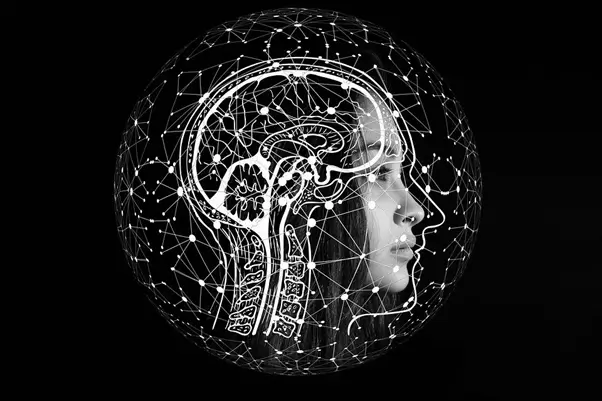“The seeds of empathy grow where we plant and cultivate them.”
-WiL Turner
Emotional Intelligence is the process by which one can discern the needs of others. Those who possess this ability are most likely successful and able to nurture healthy relationships with their loved ones, friends, and peers. Keeping in mind the emphasis on emotion as it relates to a previous blog post by Living Well With WiL outlining the defining characteristics of emotionally intelligent people.
What do we refer to as emotional intelligence?
Emotional intelligence refers to the ability to understand and manage one’s own emotions and recognize and influence the emotions of those around them in a positive way. The term was brought forward by John Mayor and Peter Salovey in 1990, but later, Daniel Goleman gained popularity based on his claims that emotional intelligence plays a vital role in building both personal and professional relationships. Read here how you can increase emotional intelligence. It should also be noted that the importance of Emotional Intelligence (EI) refers to a person’s ability to assess, control, and evaluate emotions. Research suggests that Emotional Intelligence is possibly learned and can be strengthened with practice. Others assert it’s an inborn characteristic, which has yet been proven to scientifically be true.
Emotional Intelligence, or EQ, has become among the most vital skills in personal and professional life. Numerous studies and research are claiming that it is the strongest predictor of an individual’s performance and maturation.
The following Emotional Intelligence examples include the ability to accept criticism and take accountability, showing empathy towards others, letting go of emotionally trivial things, knowing when to say no, being able to share feelings with others, and helping others solve problems.
Four competencies of emotional intelligence

The following are four vital components of emotional intelligence:
- Management of personal and professional relationships
- Self-awareness
- Being socially aware
- Empathy
To gain a proper understanding of EQ, one must understand all four of these components, along with some real-life examples of emotional intelligence.
Management of Personal and Professional Relationships
Personal and professional relationship management refers to one’s ability to categorize and compartmentalize their feelings where these are elicited under duress, while at the same time understanding conflicting differences without over internalizing, having personal or emotional bias or deflections. Unfortunately, numerous people run away from conflicts rather than working to solve them.
Studies claim that those unable to resolve issues are the most likely to be the most reactive, depressed, or anxious. Thus, putting a strain on one’s relationships and self-esteem. Therefore, to maintain healthy and happy relationships it is important to be aware of one’s emotions and what triggers these.
Self-Awareness
Being aware of yourself is the core of all competencies. It enables you to recognize your strengths and weaknesses and determines your emotions and how they are impacting the people in your surroundings. Almost all people think they are 100 % aware of themselves. However, a study shows that only 10 to 15 % of people amongst them are self-aware. Not being aware of oneself limits one’s personal, and professional growth.
According to research by Eurich, it leads to a reduction in motivation levels and an increase in stress, anxiety, or even depression. To have a better understanding of your inner self as it relates to the external world, read about understanding the body-mind connection. This may help you in the practice and process of increasing your emotional intelligence.
Being Socially Aware
Apart from understanding and managing one’s emotions, one also must possess the ability to read a room. Being socially aware refers to recognizing the emotion of others and understanding the social dynamics and needs of specific groups or individuals.
Those who are more socially aware tend to have a variety of friends and for the most part healthier relationships; short of being emotionally codependent. Such individuals typically strive harder to understand the perspectives and feelings of their loved ones, friends, and peers. Having such quality enables one to communicate more effectively and productively.
Self-Management
Self-management is the ability to hold oneself accountable for managing their thoughts, emotions, and behaviors in a cognitively productive way; especially in certain stressful situations. It also includes the maintenance of a positive perspective despite the setbacks. Those who lack this quality tend to be hyperreactive.
Those who can manage their emotions and reactions to imposing stimuli or factors that could potentially hinder their ability to problem-solve or process stressful situations with clarity, tend to be able to garner their emotions to derive more favorable outcomes which benefit all parties involved as a whole.
Empathy
By definition empathy means having an objective understanding of others feelings or circumstances. Those who posses the characteristic of empathy make for good friends to always have around. Can you run out of empathy? Psychology Today, asserts that individuals who have had to overcome consistent trauma such as those of us who have survived, for the most part; the pandemic can find themselves facing emotionally empty. Rightfully so, as many of us are feeling the effects of extensive burnout, may find themselves unable to empathize with the circumstances and feelings of others at present. In short we are all in self-preservation mode. Consequently lending itself for many to have a lack of consideration for others. Especially now, as the pandemic pushes into almost over a year now, empathy may rank low on the list of priorities. However, in order to have healthy and happy relationships; having empathy is an important proponent for us all to have.
In Closing
Emotional intelligence is good for interpersonal communication, healthier personal and professional relationships. In addition, some experts believe that having the ability to discern and regulate one’s emotions and empathize with others is more important in building relationships and determining life success than merely IQ alone. Respectively, there are things that you can do to strengthen your social and emotional intelligence. Click the link to read more about Emotional Intelligence.
Improve the way you look, feel, give and live. Visit livingwithwil.com. Get updated with more information and blogs on similar topics. Subscribe to the Living Well With WiL blog, podcast, and video channel today.







